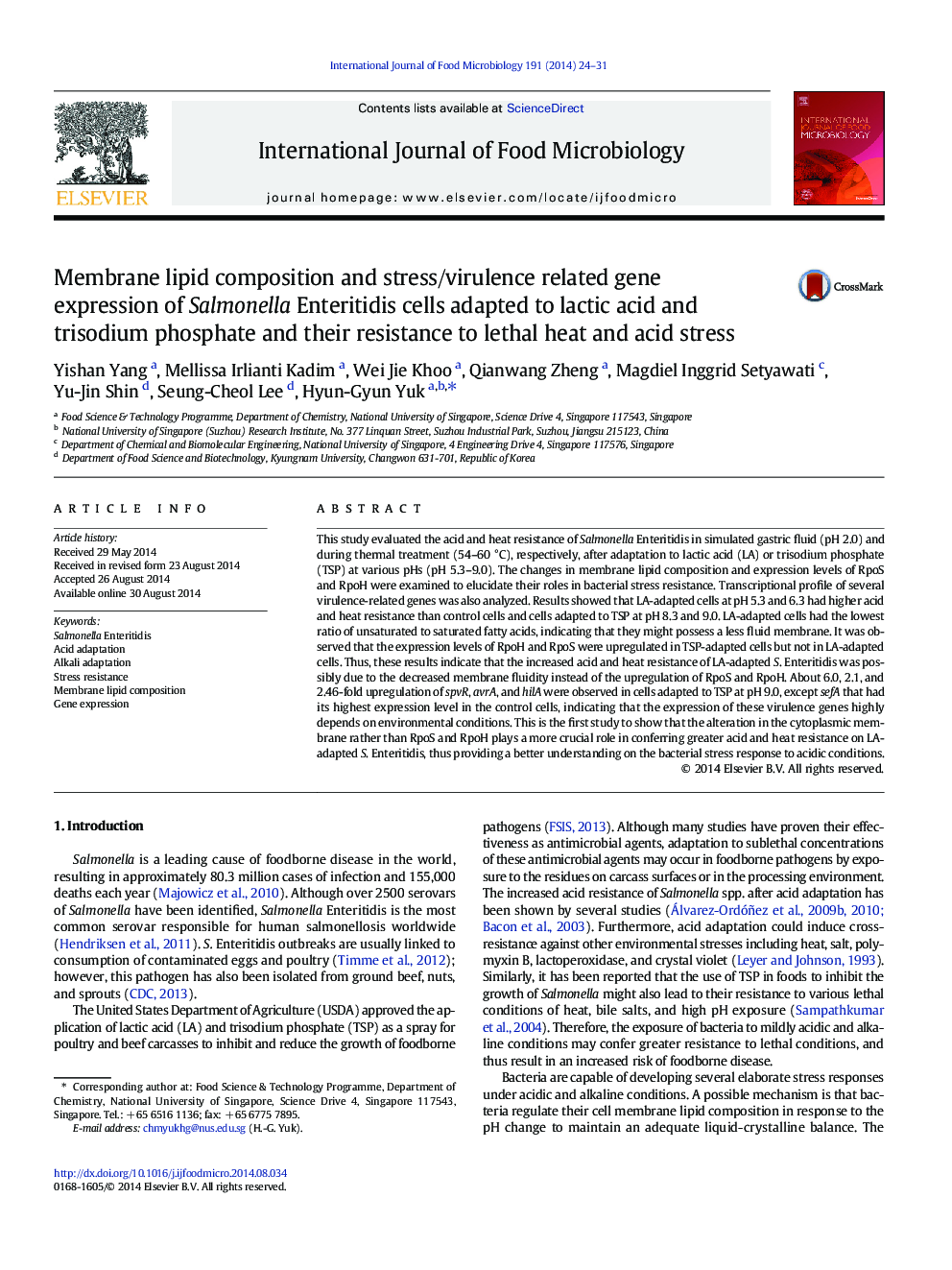| Article ID | Journal | Published Year | Pages | File Type |
|---|---|---|---|---|
| 4366717 | International Journal of Food Microbiology | 2014 | 8 Pages |
•Adaptation to lactic acid (LA) increased S. Enteritidis acid and heat resistance.•Decreased ratio of USFA/SFA was observed in cells adapted to LA-5.3 and LA-6.3.•RpoS and RpoH were induced in cells adapted to TSP but not LA.•Most of the virulence genes were upregulated in cells adapted to TSP-9.0.•The enhanced bacterial resistance might be due to the decreased membrane fluidity.
This study evaluated the acid and heat resistance of Salmonella Enteritidis in simulated gastric fluid (pH 2.0) and during thermal treatment (54–60 °C), respectively, after adaptation to lactic acid (LA) or trisodium phosphate (TSP) at various pHs (pH 5.3–9.0). The changes in membrane lipid composition and expression levels of RpoS and RpoH were examined to elucidate their roles in bacterial stress resistance. Transcriptional profile of several virulence-related genes was also analyzed. Results showed that LA-adapted cells at pH 5.3 and 6.3 had higher acid and heat resistance than control cells and cells adapted to TSP at pH 8.3 and 9.0. LA-adapted cells had the lowest ratio of unsaturated to saturated fatty acids, indicating that they might possess a less fluid membrane. It was observed that the expression levels of RpoH and RpoS were upregulated in TSP-adapted cells but not in LA-adapted cells. Thus, these results indicate that the increased acid and heat resistance of LA-adapted S. Enteritidis was possibly due to the decreased membrane fluidity instead of the upregulation of RpoS and RpoH. About 6.0, 2.1, and 2.46-fold upregulation of spvR, avrA, and hilA were observed in cells adapted to TSP at pH 9.0, except sefA that had its highest expression level in the control cells, indicating that the expression of these virulence genes highly depends on environmental conditions. This is the first study to show that the alteration in the cytoplasmic membrane rather than RpoS and RpoH plays a more crucial role in conferring greater acid and heat resistance on LA-adapted S. Enteritidis, thus providing a better understanding on the bacterial stress response to acidic conditions.
